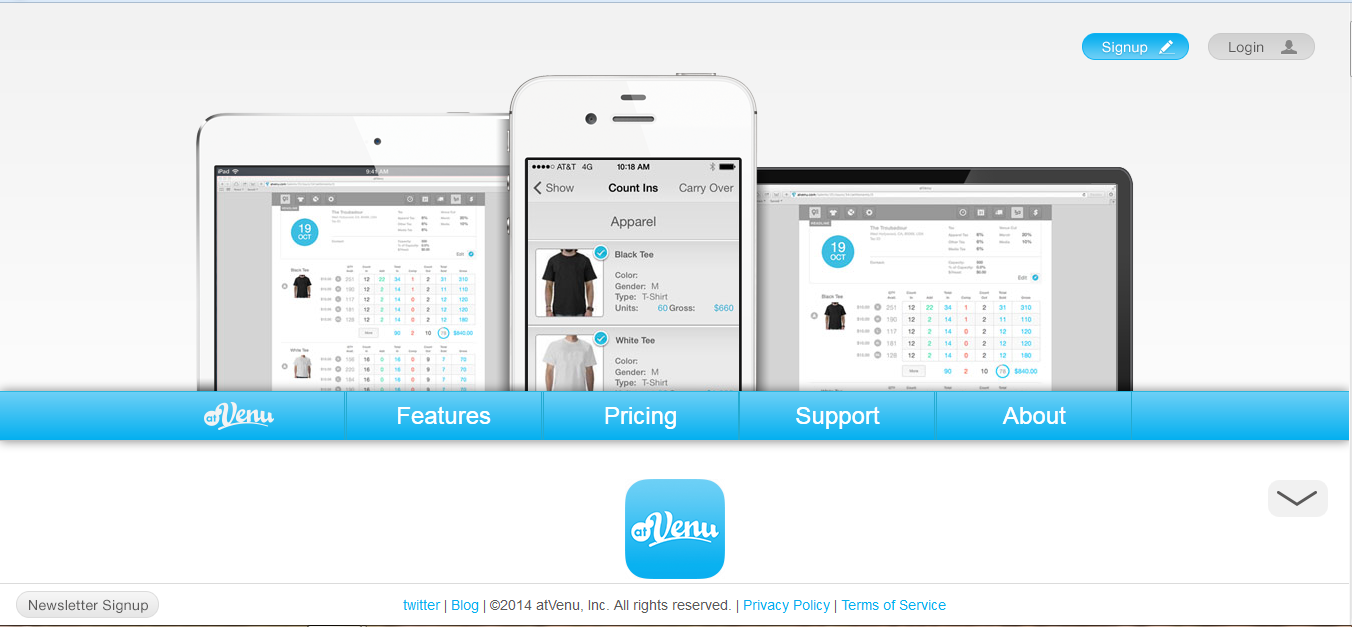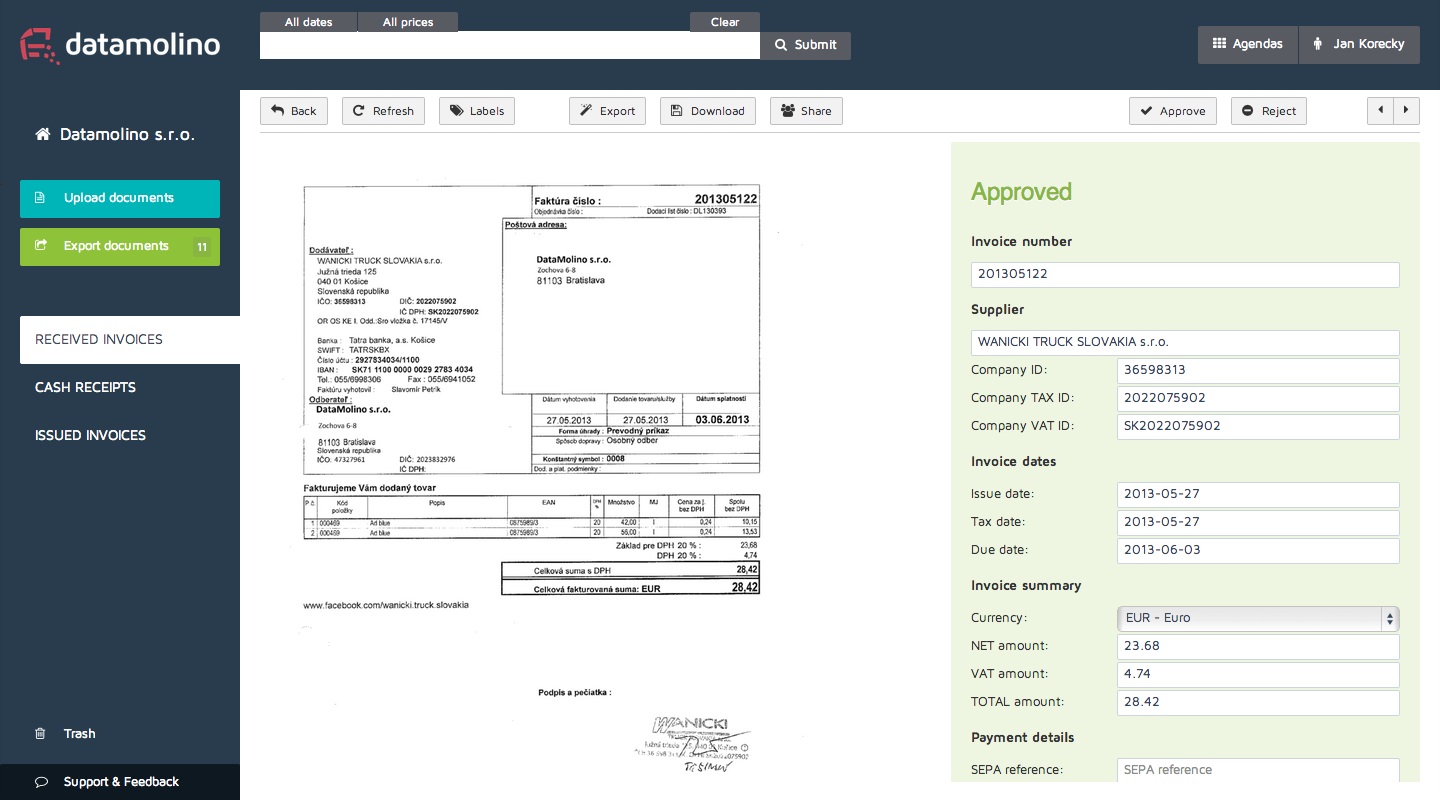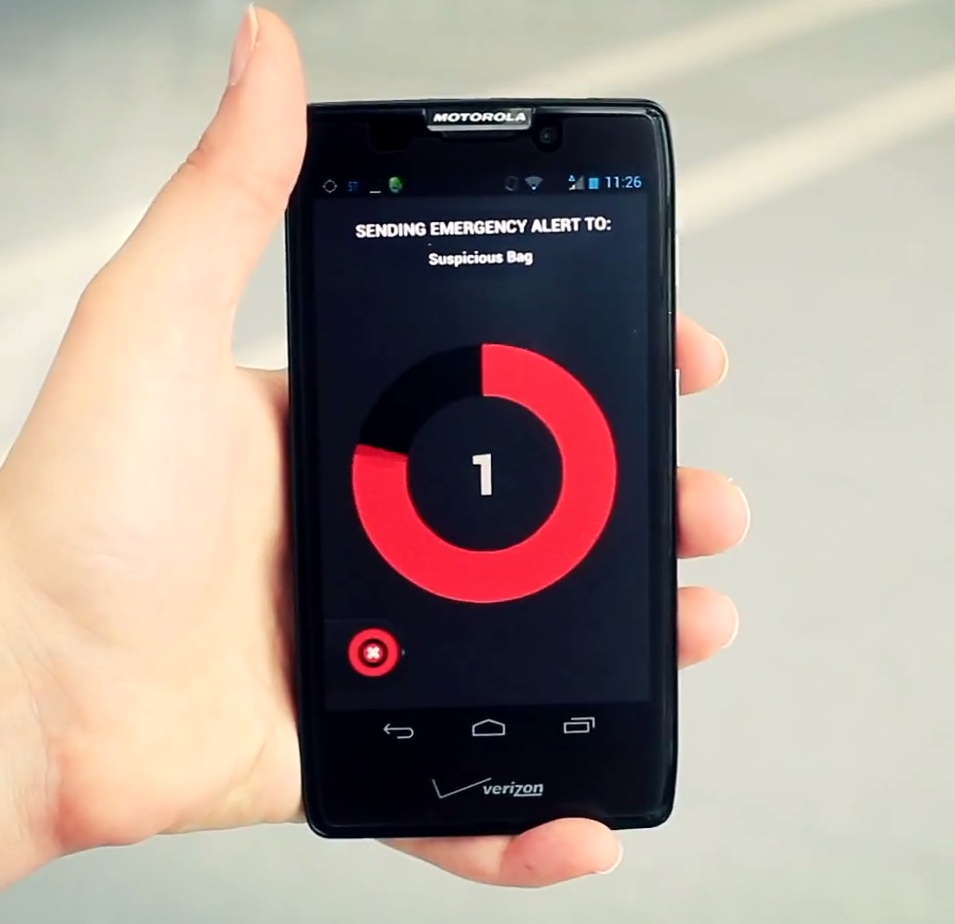 A Q&A with atVenu co-founder and president Ben Brannen. The Sausalito, California-based startup, which offers a multi-platform event merchandise management and sales platform for live performers, last week announced that it has closed a $1.1 million Seed funding round led by Real Ventures. It was founded in 2012 by Brannen, Derek Ball and James Seigel.
A Q&A with atVenu co-founder and president Ben Brannen. The Sausalito, California-based startup, which offers a multi-platform event merchandise management and sales platform for live performers, last week announced that it has closed a $1.1 million Seed funding round led by Real Ventures. It was founded in 2012 by Brannen, Derek Ball and James Seigel.
SUB: Please describe atVenu and your primary innovation.
Brannen: atVenu is a live event merchandise management platform. We offer web and mobile tools to touring artists, merch companies, and record labels to better monitor their inventory, report sales, automate venue and artist nightly settlements, deliver real-time reports, and forecast product needs for all the merchandise sold at concerts and other live events.
SUB: Who are your target markets and users?
Brannen: Our initial target market is the music industry and the people involved with managing the merchandise business for touring musicians. This includes the merch rep that sells on the road, artist managers, tour managers, merchandise companies who manage and supply the goods, and record labels.
SUB: Who do you consider to be your competition, and what differentiates atVenu from the competition?
Brannen: Our biggest competition is the status quo use of Excel. There are several forward-thinking merch companies and managers that immediately embraced our technology and are benefiting from it; however, we find others who have a difficult time changing how they do what they do. I can go on-and-on about how atVenu is a better tool for everyone involved in this business, but the bottom line is atVenu will continue to evolve and deliver features specific to this industry that empower users with real-time data, transparency of information, accuracy in accounting, better inventory forecasting, industry analytics for planning, and tools to actually sell more merch at live events. Our singular focus is to ensure bands make as much money as possible selling merch on the road. Excel is not going to evolve or offer tools to benefit this industry.
SUB: You just announced that you’ve raised $1.1 million in Seed funding. Why was this a particularly good time to raise funding?
Brannen: Because we have so much opportunity in front of us. We blew past our first-year goals and unquestionably locked in our product-market fit. Now with more than 600 bands on the platform and $60 million in merch sales, we’ve learned a ton and see a clear path forward to deliver more value to our artists, their teams, and expand our user base. We’re solving a real problem in the industry and because of that, we’ve received a ton of inbound requests and demand for our product. So, with all the pull on the rope, it was time to further ramp up and go knock it out.
SUB: How do you plan to use the funds?
Brannen: Get more devs in the boat. That and a few more sales and account managers to support the business growth. Sorry it’s not a sexier answer, like buying a yacht.
 SUB: What was the inspiration behind the idea for atVenu? Was there an ‘aha’ moment, or was the idea more gradual in developing?
SUB: What was the inspiration behind the idea for atVenu? Was there an ‘aha’ moment, or was the idea more gradual in developing?
Brannen: Out of total frustration. I managed bands for 12 years and spent five on the road selling merch and tour managing. Didn’t matter how big or small the artist was, I would always get the “we just ran out of—fill in the blank with every merch item” call. That meant lost money. We lived and died by merch sales—it was the only income we could count on. We were using the same antiquated system of Excel and email as everyone else, but it just wasn’t good enough. So I looked at several different inventory options that exist and none met the unique needs of touring artist merch. The more I looked into it, the bigger the opportunity was so I decided to push this idea forward.
SUB: What were the first steps you took in establishing the company?
Brannen: I had the idea and music industry background, but no real tech experience, so I knew I needed to find the right team to pull this off. I discussed the idea with a couple good friends, Darren and Jeff, who own the best creative agency in the industry, The Uprising Creative. They believed in the idea and brought me in to run operations and biz dev while I worked to incubate this out of their Silver Lake office. I brought them in as partners and we began designing the product; but it didn’t answer how it would get built and grow as a company.
Then Derek Ball walked in The Uprising’s front door. Derek is a serial tech startup entrepreneur with incredible success stories. He had just sold his last company and was introduced to The Uprising. We began kicking the idea around and immediately figured out we would make an awesome team pairing music and tech. He introduced me to James, the CTO from his last company, and the three of us co-founded atVenu and immediately went to work. We built an MVP in a couple months, it went great, launched a full-feature version, learned a ton, gave it to close friends to use, word-of-mouth spread, and we ended our first year with just under 600 artists in a private, invite-only, beta. I’m incredibly grateful to have the opportunity to work with these guys—it’s a constant reminder of how important a great team is.
SUB: How did you come up with the name? What is the story or meaning behind it?
Brannen: I wish I could take credit for it, but I can’t. James, our CTO, shot off an email to everyone that just said “atVenu.” We knew immediately that was it. It made perfect sense. We’re building a platform that manages all the needs around merchandise sold at venues—ah ha!
SUB: Do you have plans to seek additional outside funding in the near future?
Brannen: No plans as of now.
SUB: What have the most significant challenges been so far to building the company?
Brannen: One of the first challenges was earning trust. Some folks in the music industry are pretty wary on new technology and many had their minds made up that atVenu absolutely could not do what we told them it could do. We made it our mission to not just earn their trust, but also their love. We worked non-stop to build, listen, learn, support, discuss, train, demo—anything and everything to help users embrace it. Through our front line efforts and the incredible tech under the hood, we’ve earned our users’ trust and much more. Once that was in place, word-of-mouth spread. The next biggest challenge was delivering new features and growing the platform as fast as we wanted. We began to add more engineering and business resources and will continue to do so.
SUB: How do you generate revenue or plan to generate revenue?
Brannen: We charge a flat monthly fee per artist per touring month. Currently, there are three different plans with varying features artists can select from. We have several enterprise agreements in place with record labels and merch companies. We’re also just now offering features that allow merchandise transactions to run through atVenu, which we take a percent fee from. So, both monthly subscription and transactional fees generate revenue.
SUB: What are your goals for atVenu over the next year or so?
Brannen: To kill it! We’re having a blast and absolutely love what we do. Our energy is high and opportunity huge. You’ll see continued growth of the platform with tools for venue operators, festivals, real-time inventory POS integrations, features that increase sales before, during, and at live events, continued growth in global touring markets, and more. We love our users and are focused on ensuring we deliver as much value as possible to them.








